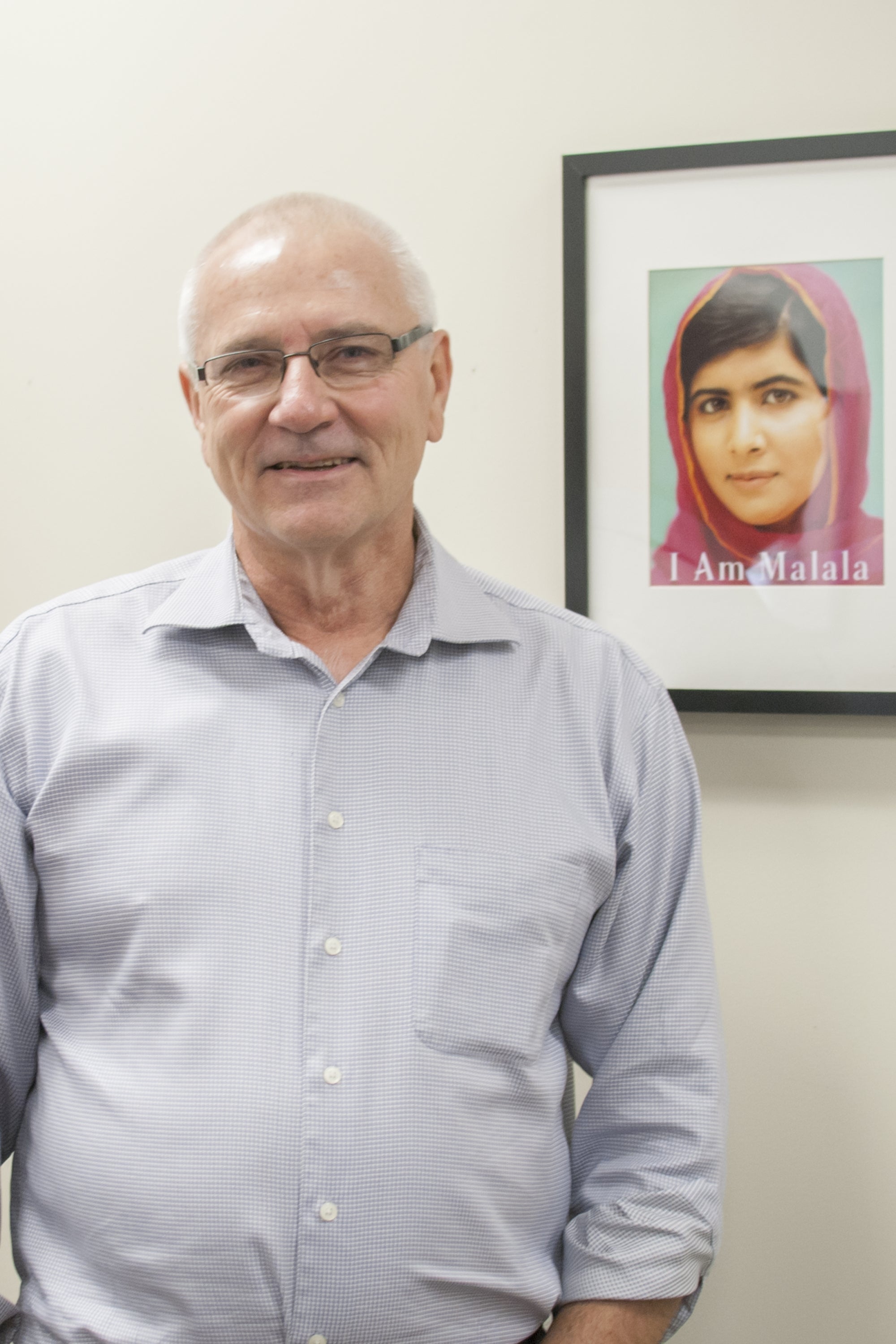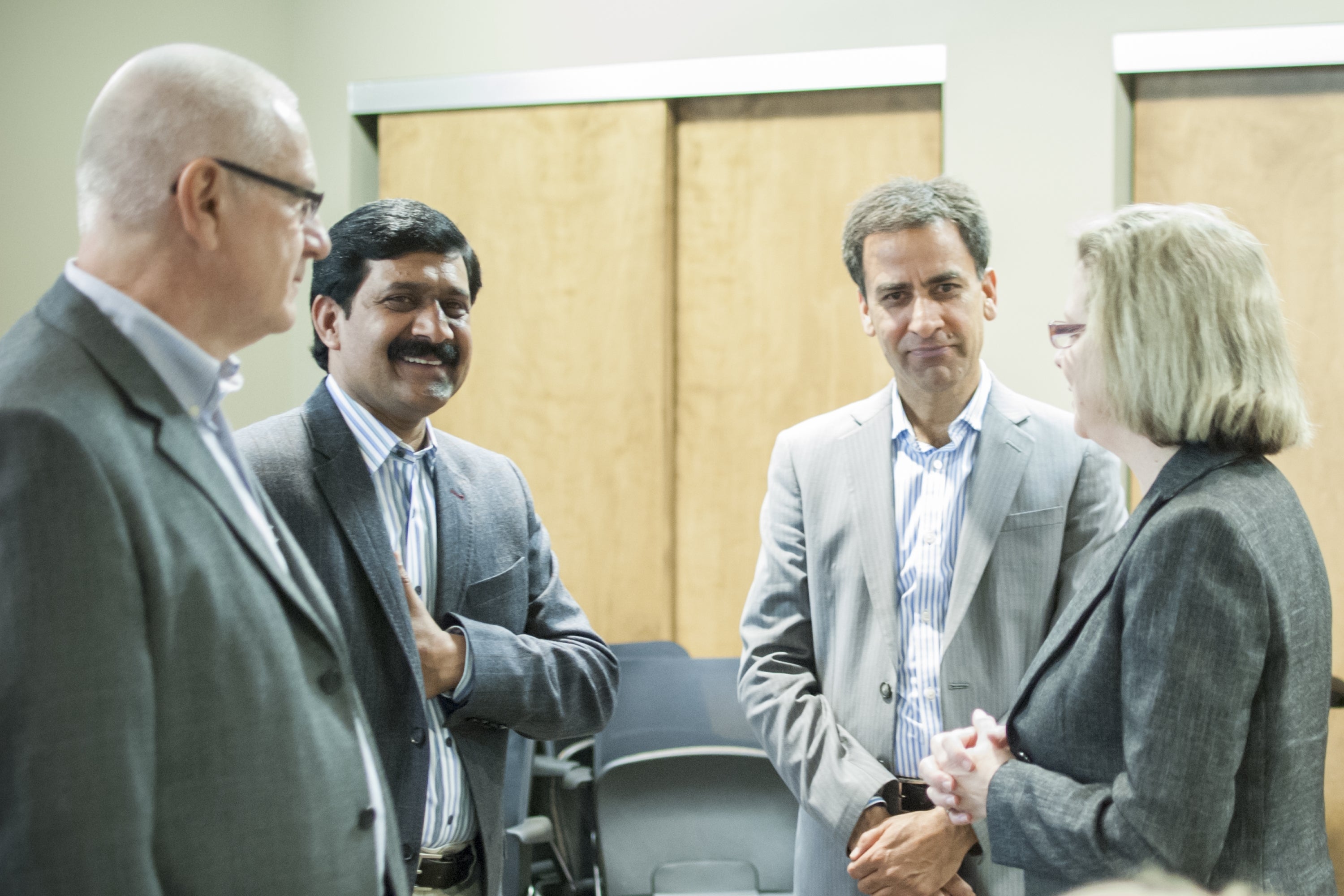
Both Yousafzai and Satyarthi are brave visionaries struggling against the suppression of children and young people, and are fighting for the right of all children to education. The oldest and largest Peace and Conflict Studies department in Canada, housed at Conrad Grebel University College at the University of Waterloo, believes that this choice of recipients is most deserved.
“I’m excited about the fact that Malala was named the winner of the Nobel Peace Prize,” said Lowell Ewert, Director of the Peace and Conflict Studies program. “She deserves the award because of her inspiring commitment to peace. She also is proof that young people can have an enormous impact. Secondly, over the last few months, we have been working with Malala’s father, Ziauddin. He’s a genuine peace advocate who has been talking with us about developing some collaborate work together. It’s inspiring to work with him and to be engaged in these conversations.”
Conrad Grebel is pleased to have connected with Ziauddin Yousafzai, Malala’s father, on a number of occasions. Ewert is currently teaching a graduate course in “Building Civil Society”. In an effort to apply their skills in a tangible way, his students are working on a major project to prepare the primary background documents necessary for possibly establishing an NGO called Global Peace Council of Canada (GPCC). This is an initiative of Ziauddin Yousafzai’s and will be affiliated with Global Peace Council of Pakistan. They anticipate that the proposed NGO will be involved in promoting peace education, primarily for schools in regions of conflict.
Recent Master of Peace and Conflict Studies graduate, Jahan Zeb has been the catalyst in bringing the GPCC project to Grebel, fully utilizing Grebel’s peace background and infrastructure. With the establishment of the MSCU Centre for Peace Advancement this year, Conrad Grebel has worked towards creating a hub of entrepreneurial and interdisciplinary collaboration, fostering new ways to advance peace in a conflict-filled world. Zeb has a desk in the Epp Peace Incubator, a vital part of the Centre for Peace Advancement that provides an open and collaborative space for peace practitioners to interface with Grebel students and faculty and with other Centre for Peace Advancement affiliate groups. With the goal of bringing occupants of the floor together in an incubator space for discussion and a cross-fertilization of peace, this model is already showing fruitfulness as the GPCC begins to take shape.
“Malala’s Nobel Peace award means a new world of peace and hope to me, my family and our people,” remarked Jahan Zeb. “Our families in Canada and Pakistan are celebrating this historic moment of our lifetime by sharing congratulatory messages and praying for peace. This award has reinforced confidence in young people and in women and will make our world more peaceful and stable. Insha’Allah!”
"The MSCU Centre for Peace Advancement is well-positioned to incubate practical applications of Malala's vision,” explained Paul Heidebrecht, Director of the Centre. “We look forward to helping the Global Peace Council Canada build on its connections with Ziauddin to enhance peacebuilding efforts in the Swat Valley of Pakistan."
“Conrad Grebel University College has been pioneering peace education since the mid-70's and now teaches over 1200 undergraduate students a year, 30 grad students, and more than a hundred students in our Conflict Management certificate program,” noted Conrad Grebel University College president Susan Schultz Huxman. “More importantly, we teach ‘the Malala way’ of securing peace at the civil society level and now have a 4th stream of peace in the MSCU Centre for Peace Advancement. The Grebel Gallery in this beautiful space recently showcased an art exhibit featuring the first female recipient of the Nobel Peace Prize—Bertha von Sutter.”
Conrad Grebel celebrates with Malala and her mission for peace and education for all. As Malala has said, “One child, one teacher, one book, one pen can change the world.” She has shown this to be true.
First awarded in 1901 by Alfred Nobel, the Nobel Peace Prize recognizes the person who has done the most or best work for “fraternity between nations, the abolition or reduction of standing armies, and for the holding and promotion of peace Congresses.”
Founded in 1963 by Ontario Mennonites, Conrad Grebel University College is a Christian liberal arts college affiliated with the University of Waterloo. The College’s mission is “to seek wisdom, nurture faith and pursue justice and peace in service to church and society.” Conrad Grebel’s core values include inspired teaching, scholarly excellence, compassionate service, community building, active peacemaking and global engagement. These are expressed through the academic and student life programs.

For further information contact:
Jennifer Konkle
Communication Coordinator
Conrad Grebel University College
519-885-0220 x24229
cell: 226-339-6830
jkonkle@uwaterloo.ca
Fred W. Martin
Director of Development
Conrad Grebel University College
140 Westmount Road, Waterloo, ON N2L 3G6
519-885-0220 x 24381
cell: 519-572-7704
fwmartin@uwaterloo.ca